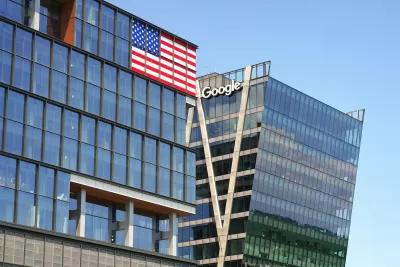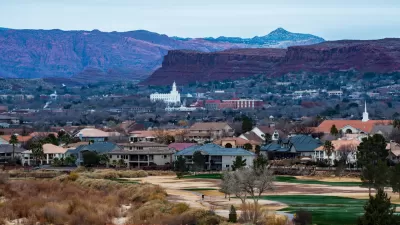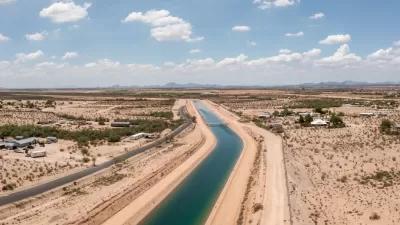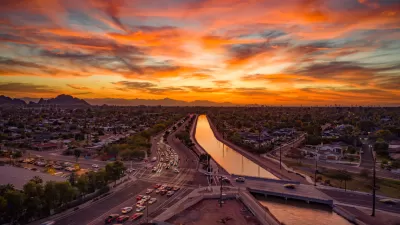Being the world’s largest data center hub is having a severe impact on local water resources.

Data centers in Northern Virginia are using “absurd amounts of water” to power cooling systems, writes Sachi Kitajima Mulkey in Grist, causing concern among local officials.
The region is the world’s largest data center hub, with over 300 facilities processing almost 70 percent of global digital information, each using as much as 5 million gallons of water per day. And because cooling methods often rely on evaporation, the water does not go back into wastewater systems. “Data centers rank among the top 10 water-consuming industries in the United States, according to a 2021 study from Virginia Tech that looked at their environmental cost. And the next generation of technology will only make these facilities thirstier, as servers that run AI algorithms generate more heat.”
A bill introduced in the Virginia state legislature that would hold companies accountable for their environmental impact failed to pass this year, postponing its Senate vote to 2025.
FULL STORY: The surging demand for data is guzzling Virginia’s water

Planetizen Federal Action Tracker
A weekly monitor of how Trump’s orders and actions are impacting planners and planning in America.

DARTSpace Platform Streamlines Dallas TOD Application Process
The Dallas transit agency hopes a shorter permitting timeline will boost transit-oriented development around rail stations.

Four Reasons Urban Planners Can’t Ignore AI
It’s no longer a question of whether AI will shape planning, but how. That how is up to us.

Bikeshare for the Win: Team Pedals to London Cricket Match, Beats Rivals Stuck in Traffic
While their opponents sat in gridlock, England's national cricket team hopped Lime bikes, riding to a 3-0 victory.

Amtrak’s Borealis Exceeds First Year Ridership Expectations
205,800 passengers have boarded the St. Paul to Chicago line, well above initial MDOT projections.

Study: 4% of Truckers Lack a Valid Commercial License
Over 56% of inspected trucks had other violations.
Urban Design for Planners 1: Software Tools
This six-course series explores essential urban design concepts using open source software and equips planners with the tools they need to participate fully in the urban design process.
Planning for Universal Design
Learn the tools for implementing Universal Design in planning regulations.
City of Mt Shasta
City of Camden Redevelopment Agency
City of Astoria
Transportation Research & Education Center (TREC) at Portland State University
US High Speed Rail Association
City of Camden Redevelopment Agency
Municipality of Princeton (NJ)





























